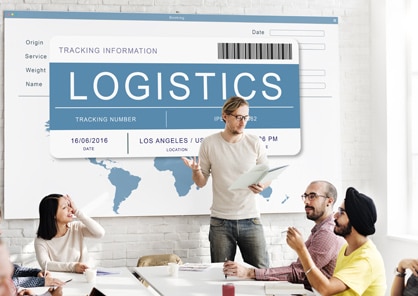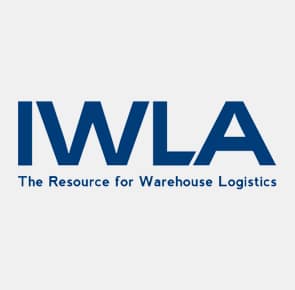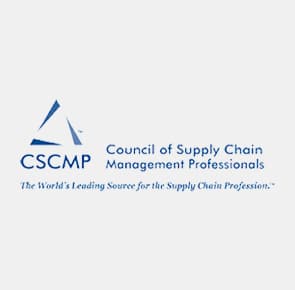Get Matched With Operations & Logistics Management Programs
What Does a Career in Operations & Logistics Entail?
A career in operations and logistics is one that entails a close focus on a business' daily procedures. Logistics professionals often work in shipping and receiving, for instance, ensuring that every package is shipped or received intact, and with consistent packaging, etc. Logistics professionals often face problems related to expanding a facility to receive or ship new items or negotiating an international supply chain. Some other titles or fields that use logistics in their industry, though often overlapping, include the following:
- Operations and Supply Chain Management
- Global Supply Chain Management Operations
- Management and Logistics
- Business Administration, Operations Management, and Logistics Management
- Inventory Management, Logistics, and Transportation
- Business Administration and Project Management
- Logistics and Supply Chain Management
The fields of operations and supply chain management and logistics require a deep understanding of all the factors that are involved in shipping and effective movement of goods and services. You will need to know everything about the logistics and transportation details involved in shipping a package via ship, air, or roadway. You might factor in things like the time of day a truck travels from point to point, including all sorts of variables such as traffic, weather, and speed. To predict success, you'll need to factor in various probabilities related to shipping.
For instance, a heat-sensitive package, such as produce, may need a refrigerated container in summer, which adds costs. Those costs might be allayed in winter, but then the shipping lines might run a risk of snowed-out roadways, or other environmental hazards. Logistics and transportation professionals are constantly up-to-date on these issues and ensure that parcels are on-time and delivered in the most cost-effective manner possible.

Components of A Successful Career In Operations & Logistics
A successful career in operations management and logistics starts with desire. Future logistics professionals should have a keen eye for detail and a penchant for accounting. They should also have a top-notch education and the ability to create and maintain systems with a high level of efficiency.
While logisticians can get started in the field with an associate degree, if they want to take their career to the next level they should consider earning at least a bachelor of science as logistics students. With a 2- or 4-year degree, professionals can add certifications that will keep their resume fresh and their critical knowledge/skill base up to date.
These professionals should also consider joining trade associations or professional organizations where they can network with fellow logisticians, find new learning opportunities, and stay up to date with new technologies and practices in the field.
Compare Popular Online Operations & Logistics Management Programs
What can you do with an Operations & Logistics Degree?
A degree in operations and logistics or supply chain management and logistics allows you to work as a logistician. That is, you can work in a facility where you oversee the practices and procedures that govern how items flow in and out of your warehouse. You may do this from within the warehouse or from an office position within the company. You may hold the title of operations management or project management, but you will ultimately be in charge of logistics and transportation.
Typical Operations & Logistics Degree Requirements
Though there are no specific requirements to enter the field, a supply-chain management, systems engineering, or logistics program and the bachelor's degree level will help students get their foot in the door. If you are working in the field with an associate degree, you might be able to advance without another logistics degree, but you will certainly want to pursue professional certifications and other continuing education. Online learning is available for those who cannot find the time to attend a university in person, including an online logistics degree or management degree.
Find Your Online Operations & Logistics Management Program
Typical Operations Management and Logistics Certifications Needed

Academic Standards for an Operations & Logistics Degree
Every school will have its own standards for its Operations & Logistics students. Some undergraduate institutions will require admission to its business program, which can be highly competitive. If your university's business school is nationally accredited, it's likely that you'll need a minimum 3.0 GPA for admission, often higher.
Once you are admitted to a business school where you can major in Operations & Logistics, or Supply Chain Management, you should strive to maintain a high GPA. A high GPA will ensure that you can continue in the program and will help you later on. You should be thinking about graduate school, and admission will be contingent on your GPA.
Exam/Experience Needed for an Operations & Logistics Degree

As you proceed in your profession, however, you might want to continue your education through a trade association. Membership in a logistics association will help you stay up-to-date with the latest innovations and other news related to your profession. Associations also have certifications and mini-degree programs that demonstrate your expanding knowledge and skill-sets. Once you have a certification, you may need to keep it current with ongoing courses, often provided by the association.
Associates Degree in Logistics & Operations
This is a good way to get started in the field. When you complete a two-year degree, you can land an entry-level position and begin learning on the job. This will allow you the time to decide whether to move on to a bachelor's degree in this or another area of business. Your logistics-specific courses might include the following:
ASSOCIATE DEGREE SAMPLE COURSES
- Intro to Transportation Management
- Purchasing and Inbound Logistics
- Productions/Operations
It may be advantageous to start your education at a community college where you can complete a two-year degree program and then land a job. Not only will you gain valuable experience on which to build a fruitful career, but you will end up saving money in the long-term. That is, community college courses tend to be far more affordable than those at four-year institutions, whether public or private.
Bachelor's Degree in Logistics & Operations
Once you move on to your online bachelor's degree, your knowledge of the field will become deeper and wider. Your sense of the issues involved will expand and you will imminently more hirable. Your coursework will become more complex and you might take some of the following courses:
BACHELOR’S DEGREE SAMPLE COURSES
- Global Supply Operations
- Analytics for Logistics
- Applied Logistics Management
- Advanced Logistics Management
As you work towards your bachelor's degree, you will have the opportunity to add a secondary focus to your degree. Also known as a minor, these few focused courses can add extra depth to your knowledge base. For instance, you could add one of the following fields to your repertoire. If you have a strong enough interest in your minor field, you could return to college later and convert your minor into a second major. To enhance your logistics degree, consider one of the following minors:
- Accounting
- International Business
- Business Law
- Economics
- Management
- Information Technology
- Computer Science
Master's Degree in Logistics & Operations
When you move on to your master's degree, seek out an MBA program that includes Logistics or Supply Chain Management as one of their concentrations/focus areas. Note that MBA programs often take a broader view of the field, so you may take many courses that are geared towards leadership or other areas of business. However, you will certainly broaden your professional knowledge and skill base as you work through your degree. Courses can include, but are not limited to:
Master’s degree sample courses
- Operations Management
- Financial Management
- Strategic Global Sourcing
- Supply Chain Analytics
- Applied Learning
What Will a Degree Cost?
Tuition is a major concern for students, and costs have been rising. However, there is no better way to ensure a fruitful career than by securing a degree. Logistics and Operations in particular is one field where your degree will open doors faster than experience in lieu of a diploma.
Associates Degree Tuition
| Public Community College | Private, For-Profit Institution |
|---|---|
| $3,000 - $5,000 | $25,000 - $60,000 |
Bachelor's Degree Tuition
| Public College/University | Private College/University |
|---|---|
| $50,000 - $70,000 | $90,000 - $300,000 |
Master's Degree Tuition
| $80,000 - $130,000 |
Earning Potential for Operations & Logistics Degree Fields and Occupations
Competition for top jobs continues to increase. To stay competitive, you will need to have the most education from the best institutions.
If you enter the workforce with an associate's degree in Logistics & Operations, you might be able to work your way up, but logistics is a field that rewards higher education. Your earnings will thus be curtailed if you remain at this educational level. Even most professional certificates require a minimum of a bachelor's degree.
A bachelor's degree will really get your logistics career underway. Once you achieve a four-year degree, you'll be able to earn up to $94,000/year, but the median salary for the field is $65,000/year. When broken down by gender, women are compensated with $57,000/year as a median salary, while the median for males is $69,000.
Find Online Operations & Logistics Management Schools
When you complete an MBA with a concentration in Supply Chain Management or Logistics & Operations, or the equivalent, your earnings potential rises significantly. With an MBA, you should expect a pay increase of approximately 40%. Overall median salaries for MBAs in the field is $105,950. Note that there is a significant gender gap and women with MBAs are compensated at $92,910/year while their male counterparts are paid a median of $107,580.
Operations & Logistics Fields of Study Median Salaries
Financial Analyst
study the finances and prepare financial statement documents for companies. Analysts might also work for consultancy firms and provide analysis for their clients. This analysis can be used to determine a company's overall value or to help with future decision making.
| Entry Level | Mid-Career |
|---|---|
| $55,200 | $68,900 |
Systems Engineering
create systems that eliminate waste and redundancy in a corporation or supply chain.
| Entry Level | Mid-Career |
|---|---|
| $72,500 | $88,300 |
Supply Chain Management
manage how items are ordered, shipped, and received along supply routes.
| Entry Level | Mid-Career |
|---|---|
| $62,000 | $85,600 |
Management
oversee employees within a company or department. This fundamental skill is vital for any upwardly mobile professional.
| Entry Level | Mid-Career |
|---|---|
| $41,000 | $52,100 |
Operations & Logistics Occupations
-
Cost Estimators
A cost estimator's job is to estimate how much a particular project will cost his employer or client. Cost estimators might work for real estate developers and thus factor in items such as materials, labor, city permits, taxation, surveyor costs, and architect fees, for instance. -
Industrial Engineering Technicians
These technicians assist industrial engineers in creating efficient systems for manufacturing. Their calculations might include things such as human resources, machines, materials, and the energy needed to carry out the manufacture of a product. -
Industrial Engineers
Industrial Engineers seek to eliminate all waste and create the most efficient systems for manufacturing or other processes. Their job is to integrate all parts in a system, including the people, machines, energy resources, and information that are vital to producing the desired product. -
Operations Research Analysts
Operations analysts use highly advanced mathematical models to analyze and investigate various systems. They might enter the workforce with a bachelor's degree, but more frequently they have master's degrees in some sort of quantitative, technical field.
Operations & Logistics Salaries by Occupation
Salary by Occupation with Entry Level Median Annual Salary, Mid Career Median Annual Salary, Late Career Median Annual Salary
Cost Estimator:
| Entry | Mid-Career | Late Career |
|---|---|---|
| $48,300 | $60,100 | $64,700 |
Industrial Engineering Technician:
| Entry | Mid-Career | Late Career |
|---|---|---|
| $49,000 | $56,000 | $62,500 |
Industrial Engineers:
| Entry | Mid-Career | Late Career |
|---|---|---|
| $61,400 | $77,900 | $88,700 |
Operations Research Analysts:
| Entry | Mid-Career | Late Career |
|---|---|---|
| $60,100 | $89,700 | $109,200 |
Important Questions to Ask
How long does it take to earn an Operations & Logistics bachelor's degree online?

How much does an Operations & Logistics bachelor’s degree cost?
A bachelor's degree in Operations and Logistics can cost approximately $70,000 for an in-state, public university, augmented with courses at a community college. On the other hand, you can spend as much as $300,000 for a private college education. While each state system has its own pricing methods, you can sometimes take online courses from an out-of-state institution without paying a premium price.
Operations & Logistics Bachelor's Degree Coursework
To complete a bachelor's degree in Operations & Logistics you will need to take specific courses. Your coursework will provide a foundation from which to launch a career, but also provide a basis for future learning, and perhaps a master's degree. Some of your undergraduate courses might include, but aren't limited to:
- Sustainable Operations
- Supply Chain Management
- Operations Management – Trends and Topics
- Logistics Management
- Transportation Management
- Macroeconomics
- Accounting
- Business Finance
- Team Management
Does the school have the major(s) you’re considering?
When choosing a college or university, make sure that they offer the major you're considering. Logistics & Operations will usually be found within a business school, but don't assume just because a university has a business school that they will offer the specific courses you desire. Some institutions will offer a full major in Logistics & Operations, while others may only offer a course or two as an introduction to the field. This is to say that no two business programs are identical and they can vary widely in terms of their focuses. Also, be on the lookout for similar programs that might offer what you are looking for. For instance, these degrees should set you on the same career path:
- Supply Chain Management
- Logistics
- Operations Management
How many students graduate “on time,” in four years?
These days, students who graduate in four years seem to be the exception rather than the rule. In fact, six years is a more statistically sound target for graduation. The National Center for Education Statistics (NCES) shows that among students who entered a four-year institution in 2010, only 60% graduated within six years. Female students did slightly better, with 63% meeting the six-year target. Only 57% of male students crossed the dais within the six-year window.
Students who attended more competitive institutions did far better than others. 95% of students from more-competitive schools graduated within six years, where only 59% of students in open-admissions schools were able to complete an undergraduate degree in that time frame. 81% of students from all schools in between received their sheepskins in a timely fashion.
While these numbers may seem a bit discouraging, they are only statistics and apply to broad swaths of the population. Your experience is your own and if you are driven and determined, you can graduate in four, or fewer, years.
What kind of accreditation does the program hold? How is it regarded in the field?
When looking for a degree program specializing in Operations & Logistics, you can seek out one that has a national accreditation. When your program is accredited in this way, your degree will surely be recognized in any market that you apply to. That is, your school will likely be recognized and esteemed by hiring managers from coast to coast. There are two main accrediting bodies for business schools, and they accredit both undergraduate and graduate programs. They are:
Association to Advance Collegiate Schools of Business
As the oldest accrediting agency for business schools, AACSB is considered the gold standard. As an accrediting body, their standards are very high, but also more strictly academic. They weigh instructor scholarship more heavily than pedagogy or student outcomes. If you attend an AACSB school, your resume will surely open doors.
Accreditation Council for Business Schools and Programs
In the 1980's, as graduate business schools were proliferating across the nation, the ACBSP arose to meet the diversified needs of students and institutions. Students were increasingly less interested in academics than they were in practical applications, so the agency focused on pedagogy and student outcomes. An ACBSP-accredited program is more likely to be considered a teaching program, where their counterparts are more research oriented.
Both accreditations indicate excellence, so if your favorite program is certified by one or the other, you are surely in good hands. The important thing is to find the best program for you.
Software/Technology/Skills Needed
There are many specific software packages that logisticians use on a daily basis. When you have thousands of packages to ship to as many destinations, you need software to manage that schedule, and you also need some way to track your parcels along their route.
Search Programs Offering Operations & Logistics Management Majors
Since every business uses slightly different versions of these software packages, often customized for their specific uses, you will probably learn to use them while on the job. However, as you work through your school assignments and internships, you will be exposed to various software tools. Specifically, learn as much as you can about using databases, statistics software, and spreadsheets. When you have a mastery of the fundamentals, you can apply them to any situation, including a new software package.
Operations & Logistics Scholarships
-
James Greathouse APICS Certification Professional Scholarship
This scholarship is awarded to professionals who are seeking a certification through APICS. Scholarship winners receive vouchers for course materials and exam fees. -
Inbound Logistics and APICS Scholarship
Student logisticians are eligible to win this $2,500 award. To apply, you will need to write a 1,500-word essay that discusses how you decided to pursue the field and what impact you intend to have on future employers and the world at large. -
Grimes Logistics & Supply Chain Scholarship
To qualify for this scholarship, you must not be an employee of Grimes Companies, but you should be a student majoring in logistics, or a closely related field. Applicants must have a minimum 3.0 GPA and submit a 500-1000 word essay. Winners receive $750 to further their education. -
North American Van Lines Logistics Scholarship
This scholarship is worth up to $1,000 for winners who are seeking a career in logistics. To enter, you must submit a 400-800 word essay that explains why you chose logistics as your college major. Entrants must also be full-time students in an accredited college or university.
Professional Operations & Logistics Organizations
- APICS
- LTNA
- IWLA
- CSCMP

APICS
American Production and Inventory Control Society(APICS)
APICS is a professional organization that provides certifications and other resources for professional and student members alike. Their certifications are held in high esteem and members receive free exam manuals, reduced-cost prep courses, and exams. Members have access to proprietary job postings, publications, and other career enhancements.

LTNA
Logistics & Transportation Association of North America(LTNA)
LTNA's goal is to, "promote and support the people who make Supply Chain Logistics work." With over 25,000 members, membership will afford you a large community on which to rely when you are looking for the next job, or when you need to hire a top-notch profession logistician. They are also involved in conferences that keep members up to date on the current trends and topics that impact your professional life.

IWLA
International Warehouse Logistics Association(IWLA)
IWLA is the premier association for warehouse logisticians who are seeking to enhance their knowledge and community contacts. IWLA provides loads of educational events that keep you current on hot topics and can provide training for your incoming logisticians who may need to focus on issues specific to warehousing. IWLA also hosts conferences and awards certifications.

CSCMP
Council of Supply Chain Management Professionals(CSCMP)
CSCMP was formed in 1963 to provide educational, networking, and career development services to its members in the Supply Chain profession. Individuals and corporations are invited to join. Members receive their quarterly periodical, have access to educational opportunities, and can attend conferences sponsored by CSCMP.
Choosing an Accredited College
When you seek a logistics program, you want to make sure that they are fully accredited. Ideally, you can attend a nationally certified institution. Look for certifications from either the Association to Advance Collegiate Schools of Business (AACSB) or the Accreditation Council for Business Schools and Programs (ACBSP.) AACSB is the oldest accrediting body for business schools, and they are also the more traditional. While AACSB is often considered the gold standard for business schools, ACBSP accreditation is also highly sought for its focus on pedagogy and student outcomes.
When you graduate from a nationally-accredited institution, prospective employers will be sure to take note. Further, if you are working as a supply chain professional, your employer might be more likely to reimburse tuition from a nationally accredited MBA program. After all, they stand to gain so much from having such a highly-trained individual on staff.
If a nationally-accredited program is not available to you, look for regional accreditation. Your employer may still reimburse tuition for your MBA work if it is accredited by a regional agency.
Online vs On-Campus vs Hybrid
These days, education is not only offered on traditional campuses. You can pursue degrees from top colleges and universities via online or hybrid programs. In fact, it's been shown that student outcomes for online courses are nearly equal to those of students in traditional, brick and mortar programs.
Online courses and programs naturally offer students more flexibility in that you don't have to report to class at any particular time. Most online programs are asynchronous, which means that you can access your materials at any time of the day. Some courses have scheduled events, such as lectures or webinars, but you should be able to access the videos or other material at a later time.
Traditional on-campus courses are often considered superior to online education, but that bias is waning as more and more students find success with their online courses. However, traditional programs do offer students the opportunity to network with their fellow students, which can be invaluable in business school.
Hybrid programs have arisen to forge a compromise between online learning and traditional campus academics. In a hybrid program, students are required to attend events or classes on campus at set times during their tenure in school. For some programs, this is a one weekend orientation for incoming students. Other programs have week-long residencies every semester. While these events are beneficial, make sure that you can arrange for the necessary time off and/or travel for those on-campus events.
Frequently Asked Questions
How far should you plan to go in operations and logistics when it comes to education?
While you could get started in O&L with nothing but an associate degree, you might want to consider going on to earn a bachelor’s or even a master’s degree in the field. As associate degree will earn you an entry-level position in some small companies, but those that deal with truly worldwide operations and logistics issues will likely require that you earn at least a bachelor’s degree. And those that wish to continue into a leadership position will nearly always gain from earning a master’s degree. In general, no one makes it into the C-suites without at least a master’s or MBA, and these will nearly always result in higher earnings and more promotions no matter the field you end up in.
Is this field really accessible to 100% online learning?
While some fields, such as nursing or really any medical career, often require hands-on learning in order to receive a degree, logistics is usually on the other end of the spectrum. After all, logistics is all about parsing data on incoming materials, materials used in production, warehousing space, shipping times, costs, and other data you can read on a screen. No one leading in logistics is out counting products by hand themselves. So, when it comes to education in this area, it can easily be shifted to an online learning format.
Does the College Have Post-Graduate Job Placement Help & Assistance?
When you apply to a business school for logistics and operations, make sure that the program has some sort of job placement assistance for students. After all, you are studying business with one goal – gainful employment. While most business schools will offer ample opportunities, such as job fairs or internships, ensure that this is the case before you register.
Why You Need to Consider the Rating/accreditation. It Can Affect Salary.
In business, you're only as good as your reputation. This also applies to the reputation of your business school, and employers are certainly watching out for applicants from the best business schools. Employers also are more likely to reimburse tuition when you attend a highly-rated or nationally-accredited institution.
Not only is your ability to land a job often contingent on your school's status, but your salary can also be impacted. That is because employers assume that graduates from more competitive institutions will be easier to train and will provide a higher return on investment. Thus, they will be interested in investing more in employees with top degrees.
sources:
- https://work.chron.com/logistics-operations-manager-14170.html
- http://www.apics.org/
- https://work.chron.com/much-money-can-make-logistics-degree-9726.html
- https://work.chron.com/logistics-analyst-22010.html
- https://www.bls.gov/ooh/business-and-financial/logisticians.htm#tab-8
- http://www.grimescompanies.com/scholarships
- https://www.northamerican.com/scholarship
- http://www.iwla.com
